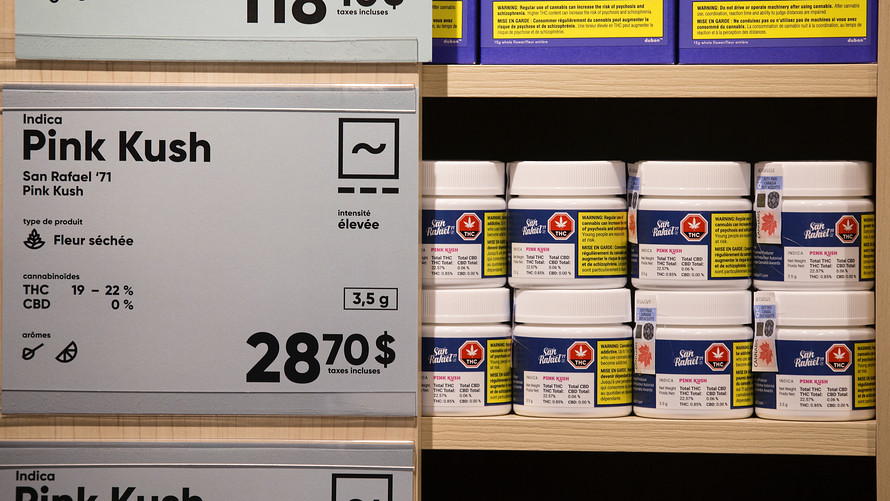You don’t have to be Nostradamus to successfully predict that more states will legalize marijuana — whether for medicinal use only or for recreational use. A bandwagon effect seems quite likely, considering 29 states plus the District of Columbia have already legalized medical marijuana. Nine of those (including D.C.) have also made recreational use of the drug legal.
But the psychological tendency of the bandwagon effect isn’t the main reason more states will legalize marijuana. Instead, the single most important motivator is an issue that many states have faced frequently in the past: They need more money.
Feeling the pain
According to the National Association of State Budget Officers (NASBO), 33 U.S. states reported collections below budget projections in 2017. That’s the most states reporting budget shortfalls since the Great Recession that ended in 2010. At least 23 of those states have already made budget cuts to get through the rest of this year. It’s also the second consecutive year where more states aren’t meeting their budgets than those that are.
Multiple factors are to blame. Lower oil and gas prices have hurt tax revenue for some states. States that expanded their Medicaid programs under Obamacare began footing part of the bill in 2017. Even for those that didn’t expand Medicaid, overall spending for the government-run healthcare program is outpacing revenue growth.
For the states that did expand Medicaid, the situation will only become more problematic in the future. If Obamacare isn’t replaced, the amount that states must pay to fund the Medicaid expansion increases each year through 2020. If the current version of Trumpcare becomes law, all funding for expanding Medicaid is slated to go away in a few years.
NASBO didn’t specifically cite the opioid-addiction epidemic as a reason for budget shortfalls. However, many states have experienced significantly higher costs for healthcare and law enforcement. The crisis has led several states to target opioid drugmakers, but the legal battles could take years to reach a resolution.
A potential solution: marijuana taxes
With states looking for alternatives to help alleviate their budget shortfalls, it’s not surprising that some politicians are eyeing the possibility of legalizing — and taxing — marijuana, especially recreational use of the drug. Some leaders in these states are no doubt looking at other states such as Colorado, which made an extra $200 million in tax revenue last year from legalized marijuana sales.
New Jersey could become the next large state to move toward recreational marijuana legalization. Although current governor Chris Christie is opposed to legalization, that’s not the case for the leading contender to take his spot next year — Democrat Phil Murphy.
Proponents of legalization in the state project that New Jersey could haul in an additional $300 million in taxes each year from marijuana sales. For what it’s worth, New Jersey’s expenditures topped its revenue in fiscal 2017 by $242 million.
 Biggest winners
Biggest winnersThe biggest winners with states legalizing gambling were the companies that operated casinos and sold equipment and supplies needed for gambling operations. A similar story will probably happen as more states legalize recreational marijuana.
How can investors potentially profit from the trend of states’ legalization of marijuana? Most publicly traded U.S.-based marijuana growers are micro-cap stocks, which usually are best to avoid. There are a some small-cap Canadian marijuana stocks that could benefit by expansion into the U.S., though.
One Canadian company that is already moving forward with U.S. operations is Aphria (NASDAQOTH:APHQF). The provider of medical marijuana already owns part of Arizona-based marijuana grower Copperstate Farms. Aphria is also increasing its expansion into the U.S. by acquiring Florida medical-marijuana grower Chestnut Hill Tree Farm.
Scotts Miracle-Gro Company (NYSE:SMG) should be another potential winner as more states legalize marijuana. The company has aggressively expanded into the hydroponics business and now stands as one of the leading suppliers of fertilizer, hydroponics, and lighting systems for marijuana cultivators.
But will the states be winners? Maybe. But many of the same states that legalized gambling are the same ones continuing to struggle today. Increasing tax revenue helps — but only if spending increases less. You don’t have to be Nostradamus to predict that more states will legalize marijuana, but it’s also a pretty safe prediction that runaway spending will remain a problem for state governments for years to come as well.














